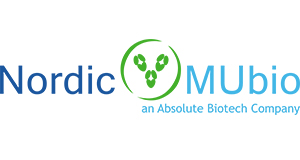Mouse anti MUC1 (CD227)
Mouse anti MUC1 (CD227), IgG1, Clone: 175C5
SKU
NORMUB1207P
Packaging Unit
0,1 mg
Manufacturer
Nordic-MUbio
Availability:
loading...
Price is loading...
Clone: 175C5
Background: Mucin 1, cell surface associated (MUC-1) or polymorphic epithelial mucin (PEM) is a mucin encoded by the MUC1 gene in Humans. MUC-1 is a glycoprotein with extensive O-linked glycosylation of its extracellular domain. Mucins line the apical surface of epithelial cells in the lungs, stomach, intestines, eyes and several other organs. The protein serves a protective function by binding to pathogens and also functions in a cell signaling capacity. Overexpression, aberrant intracellular localization, and changes in glycosylation of this protein have been associated with colon, breast, ovarian, lung and pancreatic cancers.
Specificity: 175C5 shows a high preference for breast carcinomas relative to normal breast epithelium. The antibdy reacts with a carcinoma-associated antigen in both adenocarcinomas and squamous cell carcinomas of different origins.
Formulation: Each vial contains 100 ul 1 mg/ml purified monoclonal antibody in PBS containing 0.09% sodium azide.
References: 1. J. Hilkens, J. Wesseling, H. L. Vos, J. STorm, M. Boer, S. W. van der Valk and M. C. E. Maas, Episialin/CA15-3: its structure and involvement in breast cancer progression, Ned Tijdschr Klin Chem 1995; 20: 293-298
UniProt: P15941
Caution: This product is intended FOR RESEARCH USE ONLY, and FOR TESTS IN VITRO, not for use in diagnostic or therapeutic procedures involving humans or animals. This product contains sodium azide. To prevent formation of toxic vapors, do not mix with strong acidic solutions. To prevent formation of potentially explosive metallic azides in metal plumbing, always wash into drain with copious quantities of water.This datasheet is as accurate as reasonably achievable, but Nordic-MUbio accepts no liability for any inaccuracies or omissions in this information.
Background: Mucin 1, cell surface associated (MUC-1) or polymorphic epithelial mucin (PEM) is a mucin encoded by the MUC1 gene in Humans. MUC-1 is a glycoprotein with extensive O-linked glycosylation of its extracellular domain. Mucins line the apical surface of epithelial cells in the lungs, stomach, intestines, eyes and several other organs. The protein serves a protective function by binding to pathogens and also functions in a cell signaling capacity. Overexpression, aberrant intracellular localization, and changes in glycosylation of this protein have been associated with colon, breast, ovarian, lung and pancreatic cancers.
Specificity: 175C5 shows a high preference for breast carcinomas relative to normal breast epithelium. The antibdy reacts with a carcinoma-associated antigen in both adenocarcinomas and squamous cell carcinomas of different origins.
Formulation: Each vial contains 100 ul 1 mg/ml purified monoclonal antibody in PBS containing 0.09% sodium azide.
References: 1. J. Hilkens, J. Wesseling, H. L. Vos, J. STorm, M. Boer, S. W. van der Valk and M. C. E. Maas, Episialin/CA15-3: its structure and involvement in breast cancer progression, Ned Tijdschr Klin Chem 1995; 20: 293-298
UniProt: P15941
Caution: This product is intended FOR RESEARCH USE ONLY, and FOR TESTS IN VITRO, not for use in diagnostic or therapeutic procedures involving humans or animals. This product contains sodium azide. To prevent formation of toxic vapors, do not mix with strong acidic solutions. To prevent formation of potentially explosive metallic azides in metal plumbing, always wash into drain with copious quantities of water.This datasheet is as accurate as reasonably achievable, but Nordic-MUbio accepts no liability for any inaccuracies or omissions in this information.
| SKU | NORMUB1207P |
|---|---|
| Manufacturer | Nordic-MUbio |
| Manufacturer SKU | MUB1207P |
| Package Unit | 0,1 mg |
| Quantity Unit | STK |
| Reactivity | Human |
| Clonality | Monoclonal |
| Application | Immunofluorescence, Immunohistochemistry (frozen), Immunoprecipitation, Western Blotting, ELISA, Flow Cytometry, Electron microscopy (EM) |
| Isotype | IgG1 |
| Host | Mouse |
| Conjugate | Unconjugated |
| Product information (PDF) | Download |
| MSDS (PDF) | Download |

 Deutsch
Deutsch







